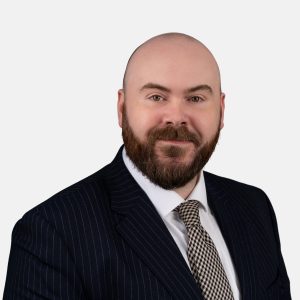During my time in academia I became captivated by patents and the IP industry. I graduated with a Masters of Chemistry (MChem) at the University of Newcastle upon Tyne and then went on to do a PhD in Medical Imaging and Radiochemistry. I thought it was intriguing that the university could come up with some clever ideas itself, get these ideas patented and subsequently gain something from having these ideas protected.
After graduating I went on to work in Vodafone’s Intellectual Property department as a Patent Engineer. From my experience working in-house, it became apparent that there is only so far you can go without training as a Chartered Patent Attorney. I was advised that if I was looking to apply to a private practice role, it might be useful to be exempt from the final exams. I therefore studied the PGCert in Intellectual Property Law at Brunel University whilst still working at Vodafone.
I joined Mathys & Squire LLP and am now training as a Technical Assistant in the IT & Engineering practice knowing that I can reach the heights of my profession in a supportive and progressive environment.
Why IP?
I like to think that the IP industry can be characterised as having three main facets, similar to the sides of a triangle. On one side there is the legal specialism, or IP Law protecting an invention; on another side there is the technological and scientific aspects, underpinning an invention; and the final side is the commercial or business motivation associated with an invention.
The fact that a patent attorney has the opportunity to assist with all sides of this triangle, working to deliver technically sound and commercially useful advice, in the context of an evolving area of law, is especially rewarding.
How did you get your job at Mathys & Squire?
I had a list of private practice firms who were recruiting and I was working my way through each of their application processes. I had a final interview with another firm lined up when Mathys & Squire responded to my application. I had a first and second interview with Mathys & Squire before my final interview with the other firm and I was impressed by the efficiency shown by Mathys & Squire throughout their recruitment process.
The interview process was straightforward; I was required to sit a written assessment prior to the first interview, which assessed my general technical competency as well as my accuracy and written English. I met the remainder of the team during the second round, which consisted of a role specific technical exercise.
My advice for fresh graduates would be to make sure your CV is targeted to the firm to which you are applying. Invest time in researching that particular firm in detail and ensure you are able to reflect this in your application. Application errors, such as inputting the wrong firm name into your application, will only show you have a poor eye for detail and that you may not have the skills for the role from the outset.
What are your main day to day duties and the skills required?
As a general overview of my day, I first start by checking any dates which are due; these are known as ‘stat dates’. These are basically formal deadlines from, for example Patent Offices, which require a response by a date they set. Secondly I will then review any cases that have come in overnight. This is because I spend quite some time working with Japanese clients, and due to the time difference, I often get into the office in the morning and have to review materials they have sent through the night before. Once I’ve done my morning review, I will go away and get on with various tasks that require action. I have two main supervisors who check all my work, but around 80% of my day is spent working independently at my desk.
One of the main skills that I would say is required for this job is meticulousness; you need to have an eye for detail and be a sharp thinker. Working as a patent attorney is also deadline driven and therefore the ability to cope under pressure and work to multiple deadlines is paramount. You need to develop a structure to your working day and find one that suits you. The STEM background of aspiring attorneys should mean that they already have picked up quite a systematic way of working.
Interpersonal skills are also important, particularly when building relationships with a client base as well as your supervisor(s). As a Trainee, most work is desk based, but, as you progress to Associate and Senior Associate level, you will be visiting client sites more often. I have been with Mathys less than two years now and have already had direct contact with clients to gather technical information. It’s important to bear in mind that you will be reflecting your firm as a whole when dealing with clients. For example, in-house IP departments talk between themselves and as it is such a small profession, you want to ensure you are providing the best impression of your firm – it may lead to work with further clients.
What would you like to achieve in the future?
By March 2018 I would like to have passed all four of my UK exams and have reached Associate level in the firm. Training and development at Mathys & Squire so far has been really helpful. The firm’s in-house tutorials are exceptional – our own Associates deliver the tutorials so it’s useful to gain perspective from individuals who have undergone the process already and, often, quite recently. Some of our Associates are Patent Examination Board examiners, so they have a real insight into how an examiner is going to review an exam script.







